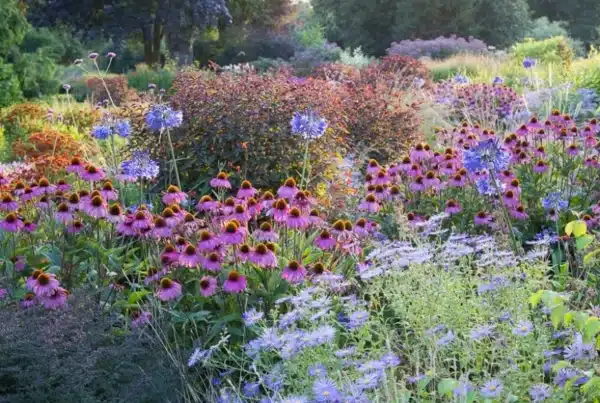Mental Health blog to Cultivating a happier you: Gardening and mental health
Studies suggest that approximately 25% of people in the UK experience a mental health problem each year. 17% of people report experiencing anxiety, depression, or other common mental health problems weekly. There has been, and still is, a lot of stigma around mental health – many people see it as a sign of weakness, and there is a belief that it is possible to just ‘get over it.’ This is not the case, and thankfully, the UK is, over time, becoming more and more aware of mental health issues, what causes them, how they impact people’s lives, and what can be done about them.
And gardening can be a fantastic tool for improving your mental health, mood and overall wellbeing.
Whether you have a full garden or just a little window box, here are six different ways in which gardening provides that welcomed little boost for a happier, healthier you.
1. The Plants
Science has shown us that the presence of plants in our lives is good for us. A little greenery can have a calming effect, lower stress hormones and reduce anxiety. Tending to plants is also a relaxing activity, so caring for your plants is arguably caring for yourself at the same time.
2. The Confidence Boost
Witnessing plants that you have tended to grow up to be happy and healthy can leave the same impact on your own mental state. When you look after a plant from just a sprouting seed into a thriving, colourful flower, tasty vegetable, or juicy fruit, knowing that you did that, you kept this plant alive and helped it grow, can do wonders for your confidence in your abilities, even ones not related to gardening at all.
3. The Peace and Quiet
Gardening is a natural form of mindfulness and meditation. Focusing on the present moment, feeling the soil in your hands, and just giving yourself that time to experience every sight, every scent and every sound can help push worries aside and promotes a sense of serenity and calm.
4. The Sunshine
Plants need sunshine to live. But you do too! Or at least, it helps. Sunshine exposure increases the rate at which our bodies produce Vitamin D, which is important for a few reasons, but most importantly, for the production of serotonin, which is a hormone which regulates mood, appetite and sleep. Even if you are unable to keep a full garden for any reason, keeping a few plants by the sunniest window in your house can increase the amount of sunlight you yourself are exposed to, giving you that little boost every time you stop to admire the things you are growing.
5. The Exercise!
Garden maintenance is a form of gentle exercise – meaning it’s the type of exercise you don’t really notice you’re doing while you’re doing it (so, some might argue, the best kind.) Even if you’re too busy with your plants to notice, working in your garden will help move your muscles and pump some blood through your veins, releasing endorphins and boosting your mood
6. The Greener World!
Gardening to grow your own fruit and vegetables is a good way to reduce the amount of food you buy at supermarket, and setting up your garden with insect houses and bird boxes encourages a diverse range of wildlife in your own backyard. Doing something for the planet, even if it’s as small as a simple balcony pot with colourful flowers that bees might love, can help bring you a sense of good within yourself, and chase away anxieties.
Conclusion
It’s okay to start small when wanting to start gardening – you can easily overwhelm yourself if you try and do too much at once. Pick out a nice flowerpot and get some seeds for a flower colour you like, or start a small vegetable patch and grow your favourite, or place some of the herbs you like best in your kitchen windowsill. If you enjoy social activities, considering going to a local community garden and make some new friends. Most importantly, embrace the journey you’re undertaking. Setbacks will happen, but that’s all part of the experience. Cultivating a garden is still a fantastic way to start cultivating a happier version of you.




